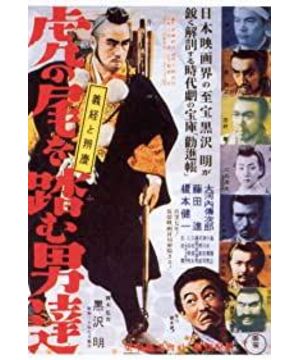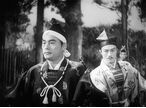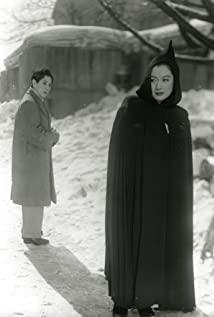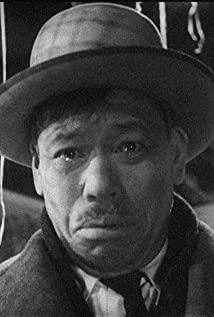The samurai family gradually entered the stage of Japanese history, accompanied by the "Palace Fight" between the Hei clan and the Genji. Then, marking the official arrival of the samurai era was the consolidation of the Kamakura shogunate. This process was accompanied by the internal struggle of the Genji.
As early as the Heian era, the Emperor of Heaven had given birth to too many children and could not afford to raise them, so they gave them other surnames and let them go out to make a living by themselves. Among these children, two of them were very competitive, and later they developed and expanded. , that is, the Ping and Genji, they made illustrious feats, and they overshadowed the limelight of the imperial court. But one mountain does not allow two tigers, and the two families are constantly fighting. To put it simply, at the beginning, the Hei family led by Ping Qingsheng had the upper hand, and almost wiped out the Genji. Unfortunately, it was already a time to look at the face. Impressed by Chao's "beauty", he persuaded his son to let him go. This release would destroy the Ping family in the final battle of Genji's altar and planted the root of the disaster.
Yuan Yoshitsune, as the number one hero in the demise of the Ping clan, was jealous of his elder brother, Yuan Laichao, but at this time, Yuan Laichao and their uncle, Yuan Xingjia, came out to do something. Betrayal, after he learned about the contradiction between the two brothers, he came to harass Yoshitsune. Regardless of whether he persuaded Yoshitsune to turn against his brother, this move finally inspired Yuan Raizhao's determination to kill his younger brother.
Next, the then Emperor Houbaihe pushed him on the path of Yoshitsune tragedy. He first taught the meaning of the scriptures to attack Lai Chao, and later because he was timid, he asked Lai Chao to attack Yoshitsune. If it weren't for knowing that he was timid, this would sound like a very scheming alienation scheme.
In a word, the most embarrassing thing about the tragedy of Yuan Yoshitsune is that he may still want to stick to his loyalty, but he is inevitably involved in the betrayal of others. In the waves, he was shot dead on the shore.
Yoshitsune's tragic experience has received great sympathy from the Japanese folk. In folk creations, the characters of tragic heroes often appear. In Akira Kurosawa's eyes, his characters are also the same. Akira Kurosawa's most famous samurai films, "Seven Samurai" and "Stick with Heart", all tell the stories of the samurai era, but "Treading the Tiger's Tail" was the beginning of that era, and this was also the beginning of Kurosawa Akira's samurai film creation. Compared with the later mature works, the story capacity of "Treading the Tiger's Tail" is only like a short film (the film length is indeed only 99 minutes), and this tragic story he tells is not so sad, his perspective, with a side. A commoner who listens to ancient legends while drinking is no different. His blood boils in the story, but he is just a sober passerby outside the story.
In addition, what Kurosawa mainly shaped was not Yoshitsune, but Musashibo Benkei, who was an important spiritual representative in the history of samurai. There is a particularly passionate legend about him. In his early years, Benkei used to go to the Gojo Bridge in Kyoto. When he saw a samurai with a big sword passing by, he would stop others from competing. The samurai who lost had to give the sword to Benkei, Benkeiichi After 999 consecutive battles without a defeat, he confiscated 999 tachis from others. Just as he was about to round up the whole number, the most important person in his life appeared, who surpassed Benkei in martial arts and conquered his heart. The person who made the invincible Benkei worship was the young Yoshitsune.
Although in history, Benkei finally stood up to protect Yoshitsune from several arrows in his body, but compared with Yoshitsune who was forced to kill his wife and daughter and then committed suicide, Benkei's death method may be more in the culture of martial arts. It is the value of the martial family realized, but it is not tragic.
Speaking of the plot in the movie, Yoshitsune couldn't escape with great fanfare. He was only accompanied by seven samurai including Benkei. Dao, because this is the weakest fortification among the Seven Dao in Japan. When they arrived at Anzhai Pass, their identities were suspected by the guards. In order to "confirm" their status as monks, Benkei took out the customs clearance documents, pretending that it was a monk's "Persuading to Enter the Entrance", and read it aloud in front of the guards. , his fluent and sonorous aura completely shocked the defender.
At that time, Yoshitsune pretended to be a porter, and was suspected by a guard next to him. After the guard left, he grabbed Yoshitsune, saying that he was very similar to the portrait of the man on the wanted list. With his rod, he beat Yoshitsune violently, scolding him as a porter not only for his incompetence, but also for causing trouble and causing him trouble. This kind of "disrespectful" approach seemed unimaginable in the mainstream concept of the year, so it dispelled doubts.
This thrilling breakthrough was a success. This paragraph appears frequently in Japanese Kabuki dramas and Noh dramas. "Treading the Tiger's Tail" takes it as the climax of the whole film. After the climax, it comes to the end, Kurosawa. Ming arranged an open-air drinking carnival for the characters, and Benkei, who had been looking so heavy, finally had a chance to temporarily relax his tense nerves. Indulge in the world, this is the life that heroes and heroes deserve, but the wings of power are too big, every success is temporary, and they will eventually slip into the abyss of dry bones.
So, the next day, when Akira Kurosawa's fictional character, the porter, woke up from drunkenness, Benkei and the others had disappeared, leaving only the rolling hills under the clouds. Obviously, the perspective of the porter is no different from that of the audience. This is the most intuitive feeling left to us by historical stories: how many things in the past and the present are all in jokes.
View more about The Men Who Tread on the Tiger's Tail reviews









